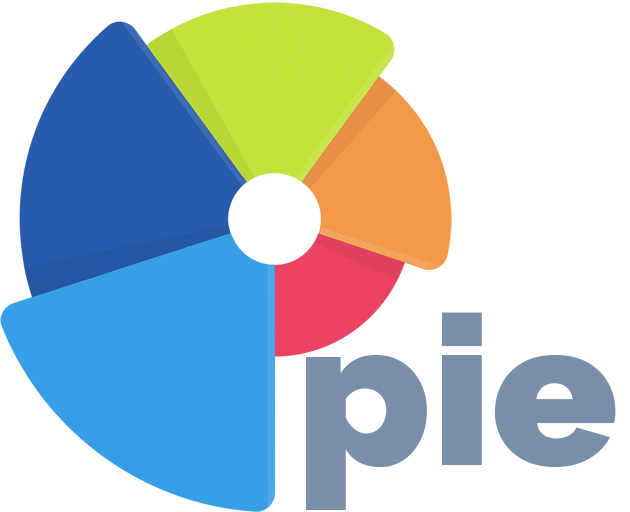Avoid Common Behavioral Health Credentialing Mistakes
Behavioral health credentialing is essential for mental health providers, but the process can be complex and prone to errors. This guide offers expert tips to avoid common credentialing mistakes, ensuring a smooth and compliant credentialing process.

Behavioral health credentialing is a must-have for mental health providers. It ensures they meet the needed standards to offer quality health care when treating patients. But the medical credentialing process can be complex, leading to common mistakes.
🚨 Planning on handling credentialing by yourself?
Just as you would advise patients to see a specialist, using a professional credentialing service ensures efficiency and accuracy. Handling credentialing yourself can lead to costly mistakes. However, if you want to understand the process or attempt it on your own, read on and explore pie Health's complete guide.
The Most Common Credentialing Mistakes
No one is perfect. Therefore, many behavioral health providers make errors during the credentialing process. These mistakes can delay approval and disrupt patient care. Here are some of the most common mistakes:
- Incomplete Applications: Many healthcare providers submit incomplete credentialing applications. Missing information or documents can delay the process. Always double-check your application before sending it.
- Inaccurate Information: Providing incorrect details can cause significant delays. Ensure all information is accurate and up-to-date. Make sure to double-check names, addresses, and contact information.
- Delayed Renewals: Providers often forget to renew their credentials on time. This can lead to lapsed credentials and interrupted services. Mark renewal dates on your calendar and set reminders.
- Ignoring Insurance Requirements: Each health insurance company has specific credentialing requirements. Ignoring these can lead to denial. Learn the requirements of each insurer you work with.
Avoiding Credentialing Errors
Avoiding these mistakes needs careful attention to detail and organization. Here are some tips to help you avoid common credentialing errors:
- Stay Organized: Keep all your documents in one place. Use a checklist to ensure you have all required information before sending your application.
- Verify Information: Always double-check the information you provide. This includes personal details, license numbers, and addresses. Correct information speeds up the medical credentialing process.
- Set Reminders: Use digital calendars to set reminders for renewal dates. This helps ensure you renew your credentials on time.
- Understand Insurance Requirements: Learn the requirements of each health insurance company. This can help you avoid delays and denials.
- Use Credentialing Services: Think about hiring professional credentialing services. They can manage the process for you, reducing the risk of errors and delays.
The Impact of Credentialing Mistakes
Mistakes in the credentialing process can have serious effects. Understanding these impacts can help providers avoid errors:
- Delays in Approval: Errors in your application can delay approval. This means you can't start seeing patients under certain insurance plans until resolved.
- Loss of Income: Delays or denials in credentialing can lead to lost income. You can't bill health insurance companies for services during this period.
- Damaged Reputation: Frequent errors and delays can harm your reputation. Health insurance companies may see you as a risk, affecting future credentialing efforts.
Best Practices for Smooth Credentialing
Following best practices can ensure a smooth credentialing process. Here are some tips:
- Keep Detailed Records: Maintain up-to-date records of your licenses, board certifications, and other credentials. This makes it easier to provide correct information during credentialing.
- Regularly Update Information: Ensure your information is always current. Update any changes in your details immediately with all relevant parties.
- Communicate with Insurance Companies: Maintain open communication with health insurance companies. Ask for an explanation if you're unsure about any requirements.
- Review Applications Thoroughly: Before sending any application, review it thoroughly. Check for completeness and accuracy to avoid delays.
Frequently Asked Questions About Credentialing Mistakes
How do I appeal a denied application? If the health insurance company denies your application, ask them why. Fix any mistakes and resubmit your application.
How often should I update my credentials? Update your credentials at least annually. Also, update them whenever there are significant changes in your practice or personal details.
Can professional services help with credentialing? Yes, professional credentialing services can manage the process for you. They help ensure your application is complete and correct, reducing the risk of errors.
Ensuring Smooth Operations with Billing and Credentialing Services
Avoiding common behavioral health credentialing mistakes is crucial for a smooth and successful process. By staying organized, checking information, and understanding health insurance requirements, you can prevent delays and disruptions. Using professional credentialing services can also help. Ensure efficient credentialing while you focus on delivering quality care.
- Revenue Cycle Management: Proper credentialing is essential for effective revenue cycle management. Accurate credentialing ensures timely payments and reduces claim denials.
- Background Checks: Conduct thorough background checks to verify the accuracy of all provided information. This helps ensure compliance with all regulatory requirements.
- Application Process: The application process can be daunting, especially for nurse practitioners and those in large healthcare organizations. Follow each step carefully to avoid errors.
- Enrollment Process: The enrollment process involves sending detailed credentialing applications to health insurance companies. Accurate and complete applications help avoid delays and denials.
- Medical Billing: Proper credentialing impacts medical billing. Ensure all information is correct to facilitate smooth billing operations and timely payments.
Need Help?
For more information on how pie Health can assist with your behavioral health credentialing needs, contact us today or download The Complete Guide to Insurance Credentialing and Billing for Mental Health Practices.




Comments ()